
“In Treatment” returns to HBO for its 4th season. At the center is Dr. Brooke Taylor – played by Emmy winner Uzo Aduba – a black therapist navigating a variety of modern concerns while juggling her own hidden pain.
When developing Dr. Brooke, showrunners Josh Allen and Jennifer Schuur wanted the main character to go in a different direction. “We had created the character of Dr Brooke Taylor first, and then I remember the moment our casting directors told us that Uzo Aduba might be available and she could be interested. My heart almost skipped a beat, I thought there’s no way we are going to be lucky enough to try to talk her into this job. And amazingly, she understood what we were trying to do. She was very much a proponent of everything that we wanted to be talking about with this show, and she was bringing her own experience to the table as well,” Schuur recalled.
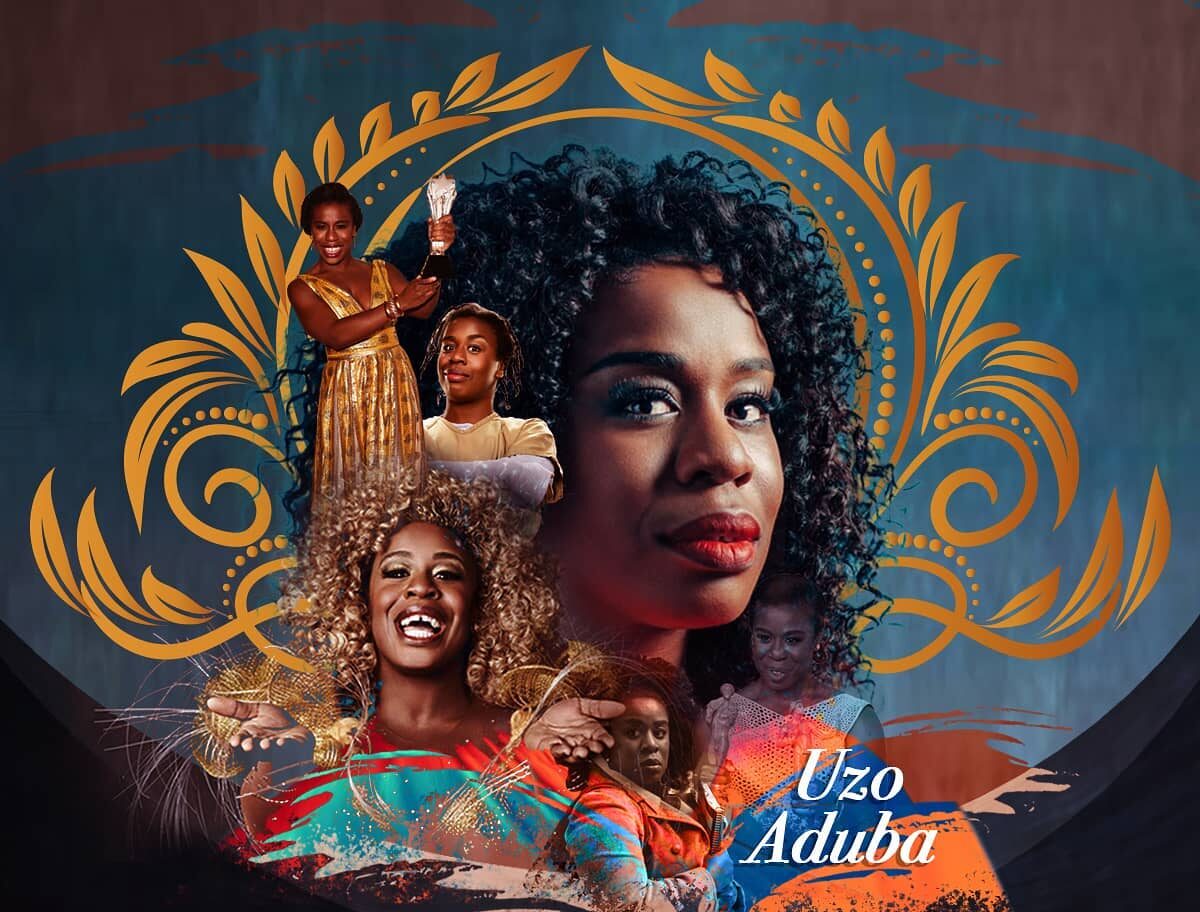
Allen added, “I mean, you’re talking to somebody who first saw her on Broadway 10 years ago, she was in ‘Godspell’, and this was before she was even in ‘Orange Is the New Black’. And I was like ‘Oh, yeah. She’s got it and she has retained it, and she banded it, and she is still doing it at the highest possible level’… So the stars kind of aligned that way. I have nothing but the utmost gratitude to her. We were so fortunate to have her.”
For those who have been following “In Treatment” for the past 3 seasons, Schuur shared that “it just felt really almost easy to have Dr Paul Weston from the original series as Dr Brooke Taylor’s supervisor, much like Diane in the first two seasons of the original series. It just felt like a really organic way to bring the old show into the present for viewers who loved the original, and you don’t have to watch the past series in order to enjoy this one.”
Check out the interview with Uzo Aduba where the 40-year-old actress delves into being captured by the story of this therapist’s life. It’s an interesting approach, because it not only about therapy but also about therapists. She also explains why she made a conscious decision not to watch the previous seasons. Find out why:
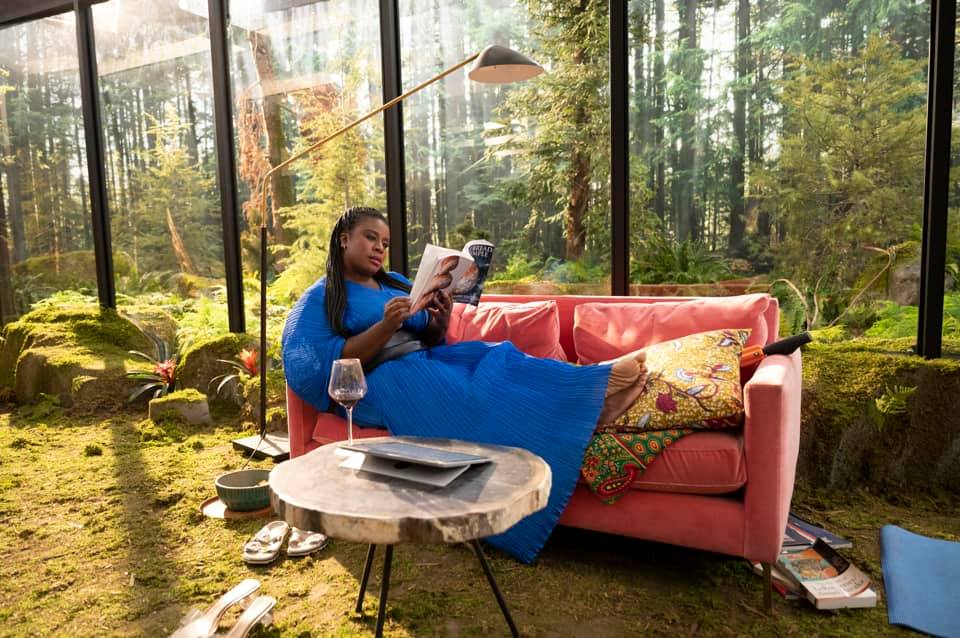
Q. What got you excited about this project, what was it that particularly drew you in?
The challenge of it really drew me in. I was also drawn to this project because being in the entertainment industry, I just never saw the conversation of mental health centred around someone that looked like me, on either side. This goes for the patients as well but the patients that we see represented here [“In Treatment”] are a cross-section of so many different experiences walks through life and that really drew me to the project as well. I’ve played characters before, who have been on the other side of the discussion, as it relates to mental health, but I’d never seen someone like myself sitting on this side of the coin, being on the other side, being a therapist.
Q. How did it feel to take over from Dr Paul Western?
If I’m being honest, I did not watch “In Treatment” previous to doing this job, and I made a conscious effort to not watch it either. For a couple of reasons, I’ve never done a reboot of anything.
The world in which our show takes place is different from the world that we all remember back in season 1-3. So in that way, I knew it was going to be different and so, for that reason I wanted to make sure that the perspective, experiences that I was drawing on and bringing to the performance were new, but also the world and experiences of someone who moves through the world that isn’t a Paul Weston, but someone like myself.
The other thing was, I only watched one episode and I watched mostly to get a sense of the format because then when they sent me the script, and I saw that it was just two people talking, I thought surely we’ll get up and there’ll be other people coming in at some point. So I turned it on, and I watched a little bit to get an idea and I was like oh, they really are just talking.
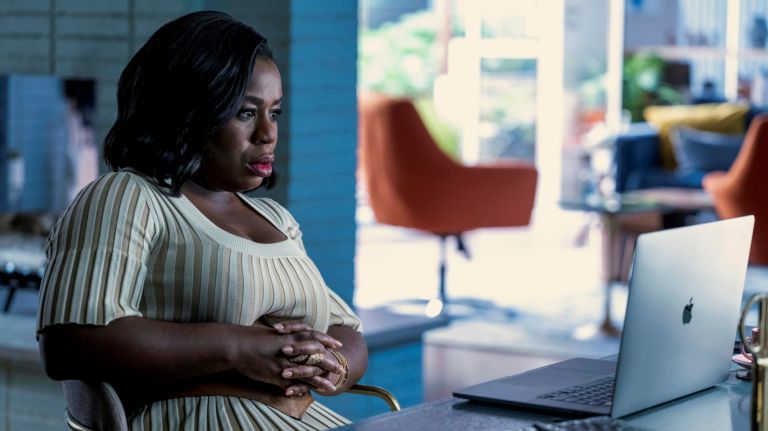
Q. How much of yourself, do you see in Dr Brooke?
With a lot of my work, there are aspects or parts of myself that I bring in, or borrow from people I know or glimpses of experiences that I have. This was the first time where I felt like I could see more of myself in a character. And I could relate to more of what she was encountering on a day to day basis. But there was still a difference in conduct but yet I understood, pain and loss from her.
Q. We have a Black therapist, which is incredible, but not only that, we have a Black woman who allows herself to be vulnerable and she asks for help, which audiences will find powerful. Is that something you were excited to bring to the table?
Definitely, I definitely would say that. You get to see in her workspace, a lot of the strength and the power and command that we often identify with black women. Often the forgotten piece is a struggle, vulnerability, challenges, obstacles, the hurt and the hard, that we experienced as well, given the equal time and space for that to be poured and felt. What I thought was great in this show and wonderful in the writing and creation of Brooke Taylor by Josh and Jen is giving both sides of her life equal time of who she is.
Q. I spoke to Jennifer and Joshua and they told me about you and John Benjamin Hickey doing one scene in one take. If you had moments like that it must mean that your chemistry was great – What was it like working with the cast?
Oh, it was amazing. I mean everybody, everybody was phenomenal, every single person was phenomenal.
With John Benjamin Hickey JBH, the Collin episodes, each patient has a different pace. His was like a train and you better be ready for it. In one scene, we did it from beginning to end. They would say we’re doing pages one to nine, or whatever. And all of a sudden we find ourselves at the end. And it was exciting when you have that energy, that feeling. And also with Anthony, you just feel it cooking. I have to be honest, everybody was amazing, we had just such a group of actors who were exceptional.
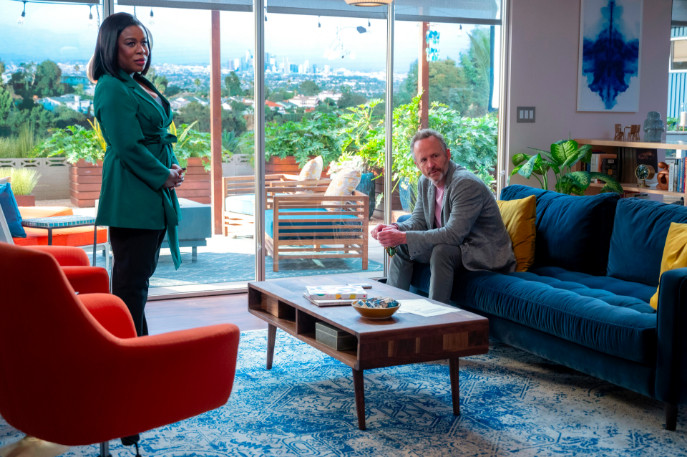
Q. What was it like to work with HBO?
It’s a true dream. Honestly, I am a huge HBO fan. It was everything that I hoped they would be top-notch and top tier. Quality and investment in your thoughts. Deep investment in storytelling and a commitment to excellence as far as it comes to the creation of story and television. They are really committed to strong creativity, which I really love and attention to detail. And I think the thing I would say most was compassionate and patient, and they were just, it was a dream, I can’t say enough it was a really truly exceptional experience.
Q. There were so many amazing, and integral topics explored in this show – racism, white privilege, ignorance, grief, sexuality and sexism. What do you think that the audiences will take away from this.
I hope the audience will take away that the conversation regarding mental health is not one that needs to be stigmatised any longer. I hope viewers take away that the person you think is perfect may be going through something and now that we are slowly moving post-pandemic, well we will at least have one thing in common. I think everybody has at least one. And I hope that people take away that talking about your feelings, sharing what you’ve gone through, or going through is not a weakness and that it’s okay. It’s okay to be not okay and it’s okay to tell people you’re not.
Q. Did you have to do any preparation and how did you approach this role?
Yes, for sure. Definitely, I conducted a lot of research, I have a friend who’s a psychotherapist, licensed therapist. And we talked quite a bit about what that job entails but obviously not revealing anything [confidentiality]. That was an incredibly enlightening experience and really figuring out what your therapist’s face was – that was a big piece, like how do you listen. That was really how I prepared for the most part for this part in this conversation of different processes and treatment methods.
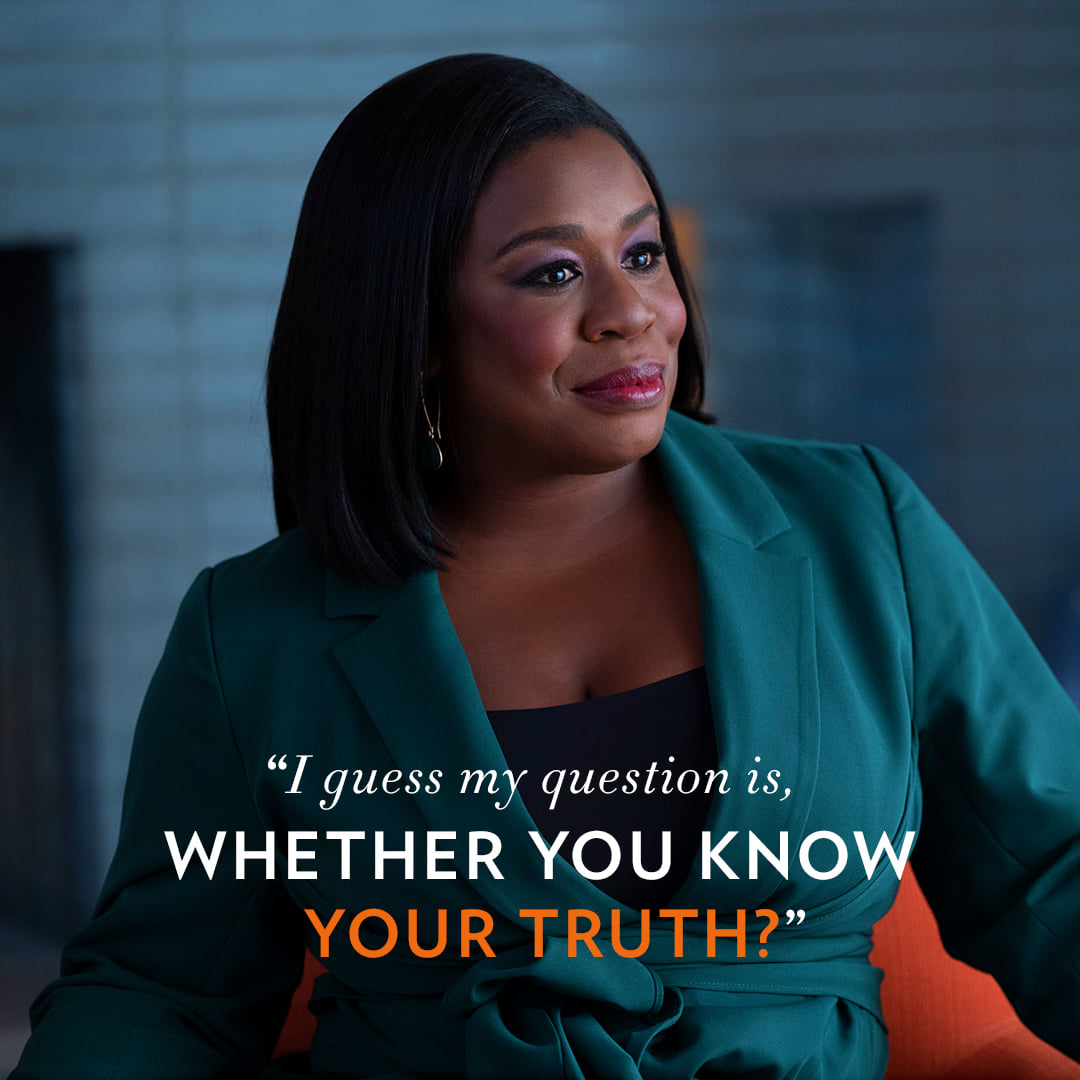
Q. Did you learn anything about therapy or did you learn anything about therapists while playing Dr Brooke?
100%, I go to therapy and I had never thought about how hard that job of being a therapist is. And I mean that because you’re there for your one hour or 45 minutes, there is a person who came in before me and there’s a person who came in after me and a therapist has to hold my stuff, your stuff, whoever comes through this door next while also managing their own challenges traumas experiences at home dramas simultaneously. This is a really hard job, and not one for the faint of heart, it made me have a deeper compassion for them and what they’re carrying and managing.
Q. How are you feeling about the launch, how are you feeling for the whole world to see this season of In Treatment?
To quote Stephen Sondheim the great composer of the musical “Into The Woods”, I’m “excited and scared”. I’m excited that people are going to see the show, I hope people connect with it. Hope it resonates and it’s a service in some way and sparks discussion. I’m still an artist at the end of the day, and it’s always nerve-racking, it’s like stage fright exists for a reason. It’s nerve-racking to have your work put out into the world and have people take it in.
Catch “In Treatment” on HBO GO and HBO (Astro Ch 411 HD) with two back-to-back, half-hour episodes each Monday and Tuesday night at 10pm.
The post Interview: Uzo Aduba On Her “In Treatment” Role As A Black Therapist appeared first on Hype Malaysia.
0 Comments